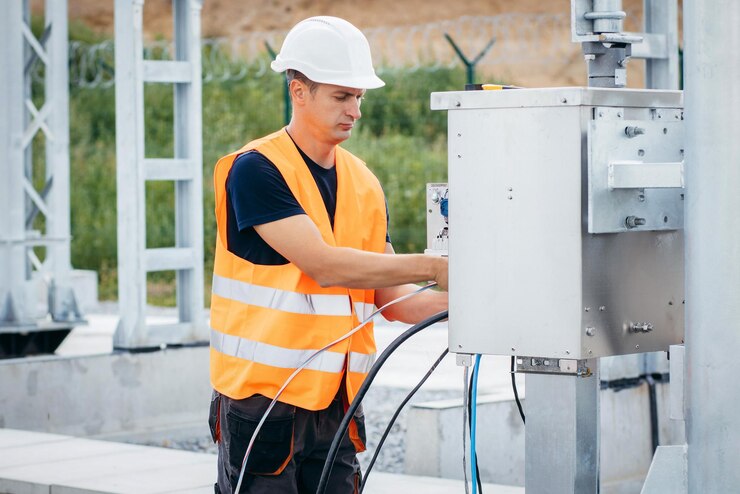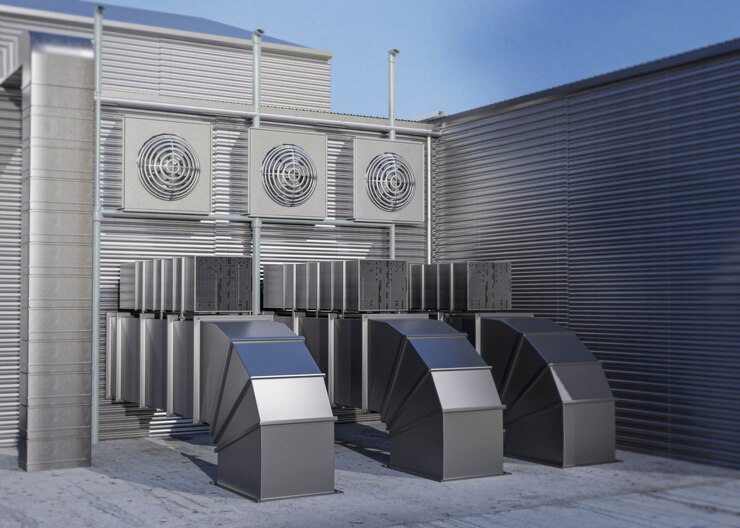Implementing a chiller energy monitoring system offers numerous benefits, including enhanced energy efficiency through real-time performance tracking and optimization. It leads to significant cost savings by reducing energy consumption and minimizing maintenance expenses. Predictive maintenance capabilities help prevent unexpected downtime, improving system reliability and extending equipment lifespan. Data-driven insights enable informed decision-making, while ensuring compliance with energy regulations and standards supports sustainability goals. Overall, these systems contribute to more efficient, cost-effective, and sustainable cooling operations, benefiting both operational performance and financial performance.
Introduction To Chiller Energy Monitoring Systems
Chiller energy monitoring systems are advanced tools designed to track and optimize the performance of chillers, which are critical for cooling systems in industrial and commercial applications. These systems use sensors and software to continuously collect data on various parameters such as temperature, pressure, and energy consumption. By providing real-time visibility into the chiller’s operation, these systems help facility managers and engineers identify inefficiencies, assess performance, and implement improvements. The integration of these monitoring systems into existing infrastructure enhances overall operational efficiency and contributes to energy savings.

Enhanced Energy Efficiency Through Real-Timeof Chiller Energy Monitoring System
Real-time monitoring significantly boosts energy efficiency by allowing continuous observation of chiller performance and energy consumption. By tracking key metrics such as power usage, load factors, and cooling output, these systems can identify deviations from optimal performance. Immediate feedback enables operators to adjust settings and make necessary changes to prevent energy wastage. Real-time data also facilitates dynamic adjustments based on current operating conditions, leading to more efficient energy use. This proactive approach helps in maintaining optimal performance and reducing the overall energy footprint of cooling systems.
Cost Savings From Optimized Chiller Performance
Optimizing chiller performance through monitoring systems can lead to substantial cost savings. By providing detailed insights into energy usage and system efficiency, these systems help identify areas where energy is being wasted or where performance can be improved. This enables facilities to make data-driven decisions to adjust operating parameters, reduce energy consumption, and lower utility bills. Additionally, optimized chiller performance extends the lifespan of equipment, reducing the frequency of costly repairs and replacements. The combined effect of improved efficiency and reduced maintenance contributes to significant long-term financial savings.
Predictive Maintenance And Reduced Downtime
Chiller energy monitoring systems play a crucial role in predictive maintenance, which helps in minimizing unplanned downtime. By continuously analyzing operational data, these systems can detect early signs of potential issues, such as abnormal temperature fluctuations or pressure drops. This early detection allows maintenance teams to address problems before they escalate into major failures. Predictive maintenance not only reduces the likelihood of unexpected breakdowns but also allows for scheduled maintenance during non-peak hours, thereby minimizing disruption to operations and extending the lifespan of chiller equipment.
Improved System Reliability And Longevity
The reliability and longevity of chiller systems are greatly enhanced through effective monitoring and optimization. By providing real-time data on system performance, monitoring systems help in identifying and addressing issues that could compromise the reliability of the chiller. Regular monitoring ensures that the chiller operates within its designed parameters, preventing overloading and reducing wear and tear. This consistent oversight leads to fewer breakdowns, smoother operation, and extended equipment lifespan. As a result, facilities benefit from improved reliability and reduced frequency of costly repairs or replacements.
Data-Driven Insights For Informed Decision-Making
Chiller energy monitoring systems offer valuable data-driven insights that aid in informed decision-making. The systems collect and analyze vast amounts of data on various performance metrics, providing actionable insights into energy usage, operational efficiency, and potential areas for improvement. By leveraging this data, facility managers and engineers can make strategic decisions on system adjustments, energy-saving measures, and long-term planning. The availability of comprehensive performance data enables more accurate forecasting, better resource allocation, and more effective management of cooling systems.
Compliance With Energy Regulations And Standards
Compliance with energy regulations and standards is facilitated by chiller energy monitoring systems. These systems help ensure that chiller operations meet industry standards and governmental regulations related to energy efficiency and emissions. By providing detailed reports and real-time data on energy consumption and system performance, monitoring systems make it easier to demonstrate compliance during audits and inspections. Additionally, these systems can help identify opportunities for further improvements to meet or exceed regulatory requirements, contributing to overall sustainability goals and reducing the risk of non-compliance penalties.
Conclusion
Chiller energy monitoring systems are instrumental in improving operational performance across various aspects of chiller management. By offering real-time monitoring, optimizing energy use, and enabling predictive maintenance, these systems enhance energy efficiency, reduce costs, and extend equipment longevity. The data-driven insights they provide facilitate informed decision-making, while ensuring compliance with energy regulations supports sustainability goals. Implementing such systems leads to more reliable, cost-effective, and efficient cooling operations, ultimately benefiting the facility’s bottom line and contributing to environmental sustainability.

Fran Bullock, a literary explorer rooted in the charm of England, unearths stories that resonate with the echoes of history. With a quill dipped in nostalgia, she pens tales that bridge the past and present, weaving narratives that captivate the soul.




